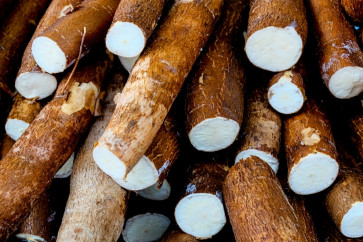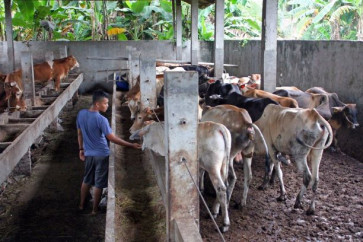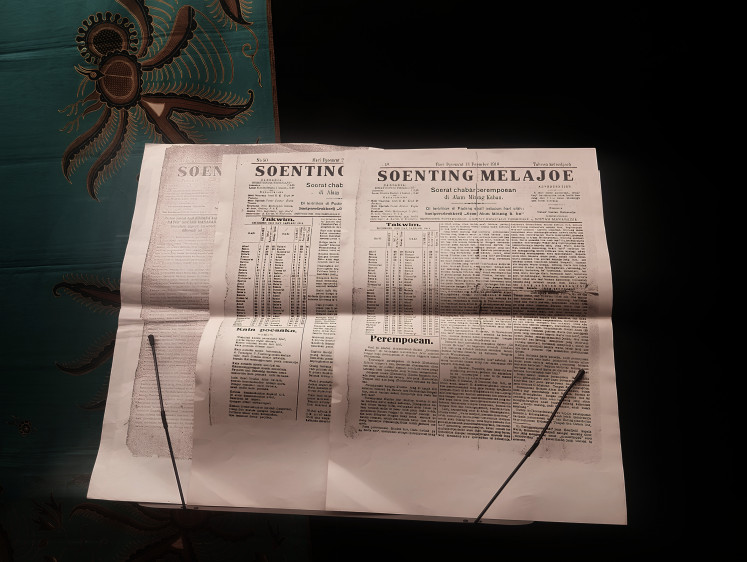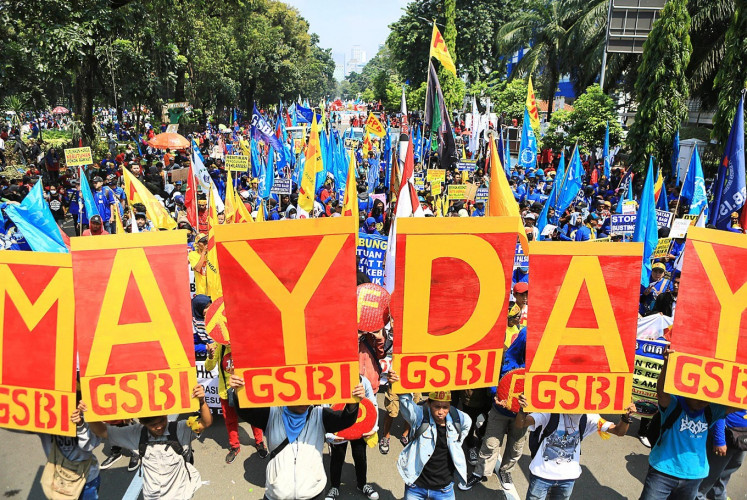The ins and outs of Semarang’s legendary coffee roastery Margo Redjo
Change text size
Gift Premium Articles
to Anyone
 In the past few years, Margo Redjo has produced a wide array of coffee powders under different brands and prices, including Tjap Grobak Idjo, Tjap Orang Matjoel, Tjap Pisau, Koffie Sari Roso as well as Koffie Mirama. (JP/Stefanus Ajie)
In the past few years, Margo Redjo has produced a wide array of coffee powders under different brands and prices, including Tjap Grobak Idjo, Tjap Orang Matjoel, Tjap Pisau, Koffie Sari Roso as well as Koffie Mirama. (JP/Stefanus Ajie)
C
offee enthusiasts may have heard of Margo Redjo, a legendary coffee roastery in Semarang, Central Java. Nestled in the city’s Chinatown, the coffee roastery is the go-to place for coffee tasting.
Although Margo Redjo is a popular spot among coffee lovers, first-time visitors may have a hard time finding the shop, as there is no signboard in front of the country house built in the Dutch colonial style.
The shop is owned by the Tan family, who have been living at the house since 1837. The Tan’s ancestors migrated from Fujian, China, to Indonesia in 1790.
The Tan family started the coffee business in Cimahi, West Java. In 1916, they founded a coffee manufacturing company called Bandoengsche Electrische Koffiebranderijj, or Margo Redjo. Prior to the establishment of Margo Redjo, the Tan family were landlords, leasing their land for salt and opium farming. However, because the business failed, they had to move to Cimahi and only returned to Semarang in 1925.
In the past few years, Margo Redjo has produced a wide array of coffee powders under different brands and prices, including Tjap Grobak Idjo, Tjap Orang Matjoel, Tjap Pisau, Koffie Sari Roso as well as Koffie Mirama.
Read also: Damn fine coffee! 6 places in Jakarta to get your caffeine fix
Now the baton has passed to Widayat Basuki Dharmowiyono, also known as Tan Tjoan Pie, a third generation family member. Under the watchful eye of Basuki, the shop now sells roasted coffee beans from across Indonesia, including Lintong, Gayo, Mandailing, Sumbawa and Ciwidey coffees.
The most expensive coffee in Margo Redjo is luwak arabica coffee from West Nusa Tenggara, priced at Rp 560,000 (US$41.26) per kilogram.
“The aroma and flavors of roasted coffee beans only last for eight hours. After [eight hours] the aroma and flavors slowly disappear. That’s why I only sell coffee beans, so customers can experience the best of the coffee's aroma and taste by grinding it themselves,” he said.
To ensure the quality of the coffee, Margo Redjo still uses a classic gas powered coffee machine. Without a temperature controller, the roaster needs to use their hands while roasting the beans, requiring experience and precision.
Basuki added that it is important to keep the coffee's flavors, as the younger generation have a greater knowledge about coffee and are more sensitive to its taste. (jes/kes)









